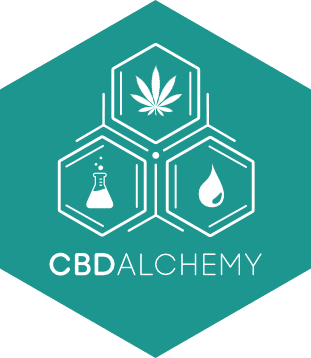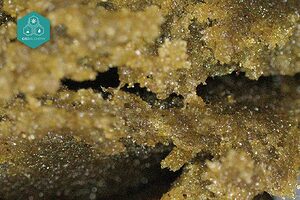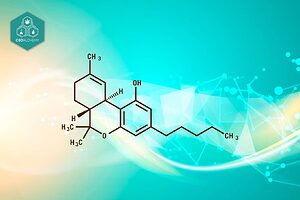Hemp oil contains a mix of essential fatty acids, vitamins, minerals, and antioxidants. This article will explain what is in hemp oil, focusing on its primary compounds and their health benefits.
Key Takeaways
- Hemp seed oil is rich in polyunsaturated fatty acids, primarily omega-3 and omega-6, with an optimal ratio of 3:1 that benefits cardiovascular health.
- The oil contains essential nutrients such as vitamin E, minerals, and antioxidants, offering significant health benefits including skin health support and inflammation reduction.
- Hemp oil can be used in culinary, cosmetic, and industrial applications, but should be approached with caution for certain groups like pregnant individuals or those allergic to cannabis.
Composition of Hemp Oil

Derived from the non-drug variants of Cannabis sativa, hemp seed oil consists largely of triacylglycerols—over 97% of its total lipids. This significant content primarily includes polyunsaturated fatty acids that represent between 30-35% of the oil’s makeup. The proportion of these fatty acids can fluctuate based on whether they are sourced from whole seeds (approximately 48%) or just hearts (around 54,7%).
Hemp seed oil is noteworthy for its ideal ratio of omega-6 to omega-3 fatty acids, which hovers around a desirable figure close to 3:1. Compared with various other commercially available food oils, this balanced essential fatty acid profile supports robust health and stands out as considerably advantageous relative to alternative seed-based oils in terms of energy balance.
Essential Fatty Acids in Hemp Oil
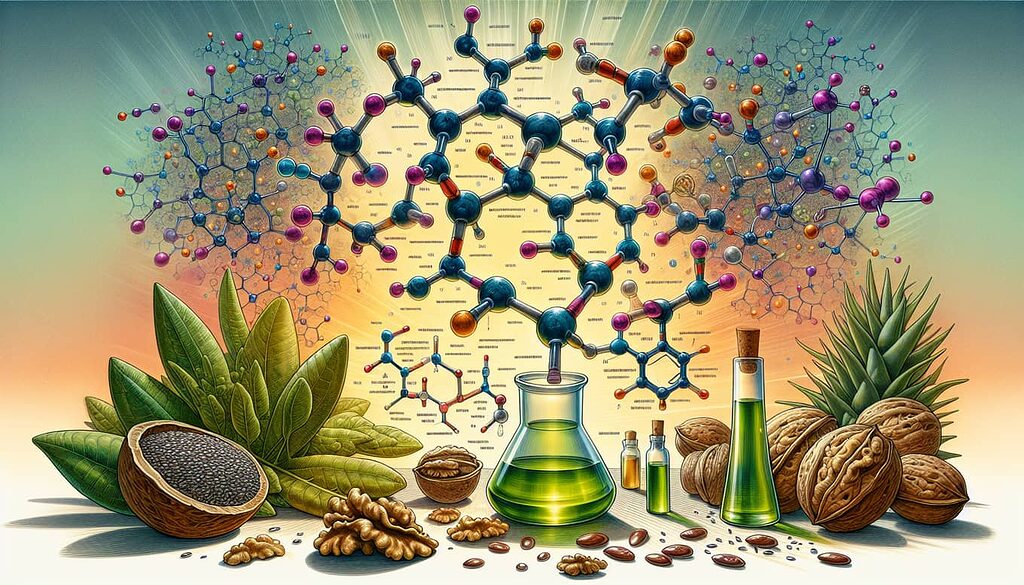
Hemp seed oil is abundant in essential fatty acids, such as omega-3 and omega-6, along with gamma-linolenic acid (GLA), all of which are instrumental in bolstering cardiovascular health by mitigating inflammation. This rich content of fatty acids underscores the significance of hemp seed oil for maintaining general health.
Omega-3 Fatty Acids
Linoleic acid is the predominant fatty acid in hemp seed oil, with alpha-linolenic acid (ALA) following closely behind. Hemp oil boasts an omega-3 to omega-6 ratio of around 3:1, a balance that’s widely recognized as favorable for one’s well-being. This equilibrium plays a critical role in diminishing inflammation and bolstering cardiac function, thus making it an advantageous addition to your nutritional regimen.
Introducing dietary hempseed oil into your diet can have marked benefits on cardiovascular health. The presence of omega-3 fatty acids within this seed oil aids in mitigating inflammation and promoting robust heart health, positioning hempseed oil as an optimal option for individuals aiming to nurture their cardiovascular system.
Omega-6 Fatty Acids
Hemp seed oil, rich in fatty acids vital for maintaining skin health and general well-being, is predominantly composed of linoleic acid. This essential fatty acid constitutes over 54% of the total fatty acids found in hemp seed oil and plays a significant role in fostering healthy skin as well as aiding in the management of conditions such as eczema.
Incorporating omega-6 fatty acids into your diet through sources like hemp seed oil can greatly benefit both your skin health and overall health. The substantial amount of linoleic acid present within this particular seed oil contributes to the treatment of various skin issues while promoting comprehensive wellness.
Gamma Linolenic Acid
Gamma linolenic acid, a variety of omega-6 fatty acids, is essential in the control of inflammation. Research indicates its capability to lessen inflammatory severity in conditions like arthritis by managing bodily inflammatory responses.
Incorporating gamma linolenic acid into one’s diet brings about several health advantages, chiefly through its ability to quell inflammation and boost skin wellness. Its efficacy in alleviating symptoms associated with skin disorders such as atopic dermatitis stems from its anti-inflammatory characteristics, rendering it an important alternative for individuals pursuing dermatological treatment.
Nutritional Profile of Hemp Oil
Derived from the hemp seed, hemp seed oil is a valuable nutritional resource that boasts a fat composition exceeding 30%. This oil is abundant in essential unsaturated fatty acids, including significant amounts of linoleic acid (omega-6) and alpha-linolenic acid (omega-3). It’s also rich in essential amino acids and a variety of minerals, making it an excellent supplement for maintaining a well-rounded diet.
Vitamins and Minerals
Hemp seed oil is rich in vital nutrients, including magnesium and vitamins E and B-groups such as niacin and riboflavin. The seeds of hemp are also abundant with essential minerals like potassium, magnesium, and phosphorus that play crucial roles in the body’s functions.
Carotenoids like lutein are present in hemp seed oil along with minor cannabinoids such as cannabidiolic acid. These compounds enhance the nutritional value of the seed oil from hemp while offering possible health advantages.
Protein Content
Derived from hemp seeds, which boast a protein content almost equal to that of soybeans—approximately 9,46 grams per 30 grams—hemp seed oil is a considerable nutritional resource. This seed oil contains complete protein, encompassing all nine essential amino acids, and thus provides an important option for individuals aiming to enhance their protein consumption.
Antioxidants
The oil derived from hemp is rich in antioxidants such as Vitamin E, which are essential for fighting against oxidative damage. These substances are instrumental in shielding cells from the harmful impact of free radicals that lead to oxidative stress.
Incorporating hemp oil into your dietary regimen can boost general health and deliver a safeguard against diseases linked to oxidative stress. The anti-inflammatory characteristics of the oil obtained from hemp also support cardiovascular wellbeing by reducing inflammation throughout the body.
Health Benefits of Consuming Hemp Seed Oil
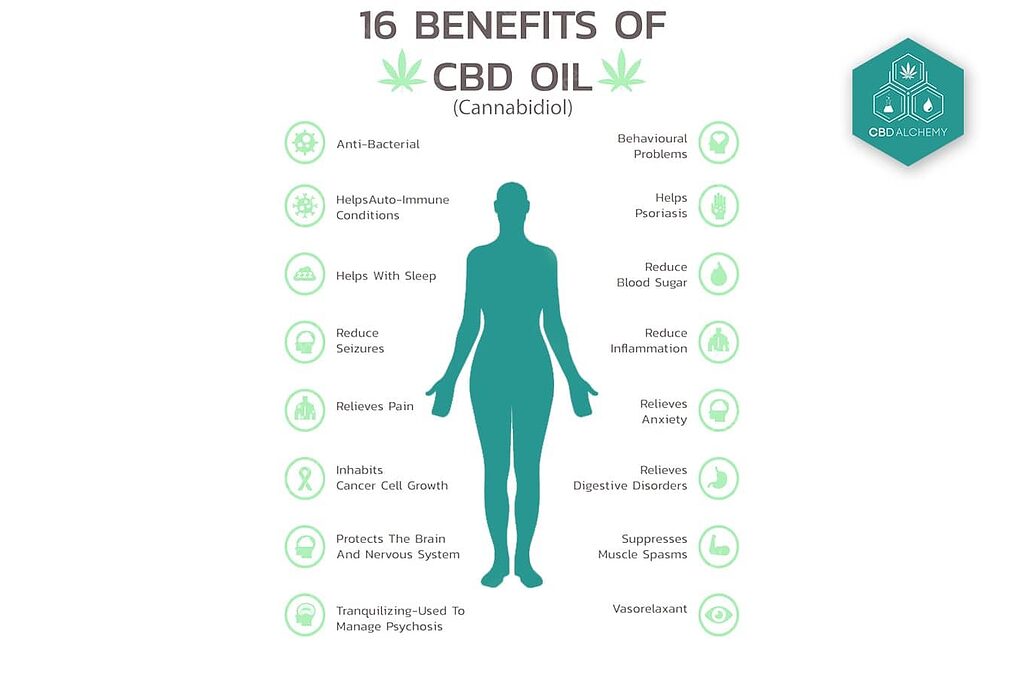
Due to their abundant nutritional content, hemp seeds are deemed a superfood. The intake of hemp seed oil can lead to various potential benefits such as boosting nutrition and enhancing general well-being.
Cardiovascular Health
Hemp seed oil contains omega-3 fatty acids, which are crucial for maintaining cardiovascular health. These fatty acids have been shown to effectively reduce blood pressure and combat inflammation. Particularly in those suffering from hypertension, the introduction of hemp seed oil into the diet can be beneficial due to its omega-3 content.
Hemp seed oil is a rich source of linoleic acid – an essential omega-6 fatty acid that plays a substantial role in reducing both overall cholesterol levels and LDL (low-density lipoprotein) cholesterol. By incorporating this seed oil regularly, one may achieve improved heart health by lowering the risk factors associated with cardiovascular diseases.
Skin Conditions
Hemp seed oil is known for its ability to ease symptoms associated with inflammatory skin conditions, including atopic dermatitis and psoriasis, thanks to the gamma linolenic acid (GLA) it contains. This seed oil has demonstrated effectiveness in enhancing the condition of those suffering from such skin issues.
The use of hemp oil in cosmetic products is highly regarded due to its hydrating properties and capacity to diminish inflammation. The rich fatty acid content present in hemp seed makes this oil a preferred choice for formulations aimed at nurturing skin health.
Digestive Health
Containing an abundant amount of antioxidants, hemp oil is capable of safeguarding the body against persistent inflammation and oxidative stress. Hemp oils with their anti-inflammatory attributes can play a significant role in reducing discomfort linked to various digestive issues.
The synergy between its antioxidant and anti-inflammatory qualities renders hemp oil advantageous for maintaining gut health. Incorporating this oil into one’s dietary regimen could contribute to lessening oxidative stress and curbing inflammation, thereby bolstering the health of the digestive system.
Uses of Hemp Oil
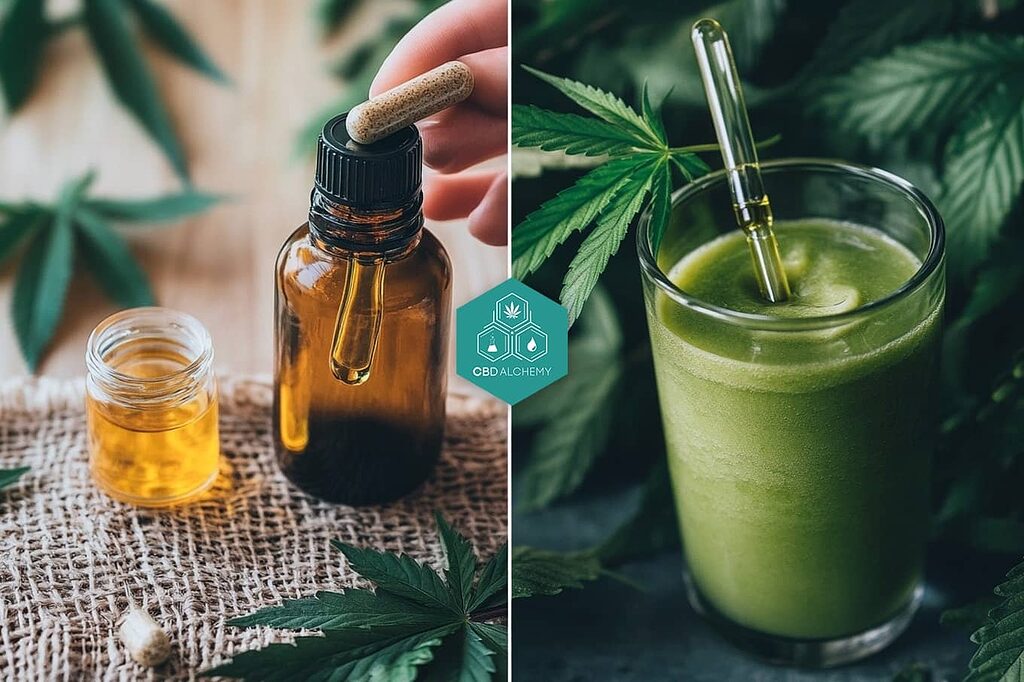
Oil derived from hemp is a multi-purpose substance that finds its uses in numerous culinary dishes, products for cosmetics, and various industrial uses.
Dietary Uses
Hemp seed oil, which can be ingested as is or incorporated into various meals such as salads and shakes, serves as a substitute for olive oil in cooking. By including hemp seed oil into food preparations, particularly salad dressings and smoothies, both the taste and nutritional value are improved.
When seeking an additional dose of nutrition in their diet, many individuals choose to add hemp oil to their smoothies due to its distinct nutty taste that complements well with other ingredients while simultaneously offering an array of health benefits.
Cosmetic Products
The inclusion of hemp oil in cosmetic formulations is gaining popularity, especially due to its capabilities as a skin moisturizer and soother. The abundance of essential fatty acids within the oil contributes significantly to sustaining skin hydration, thereby serving as an outstanding emollient.
Hemp oil’s capacity for mitigating inflammation is noteworthy, particularly when it comes to diminishing redness and calming irritation. This makes it highly beneficial for individuals with sensitive skin or those who suffer from conditions such as eczema. By incorporating hemp oil into skincare products, one can promote overall skin health through enhanced moisture retention and reduced inflammatory responses.
Industrial Applications
In the production of coatings such as paints and varnishes, hempseed oil is utilized for its drying properties. The manufacturing of bioplastics also incorporates this oil, providing a greener alternative to conventional materials.
In formulating biofuels that support sustainable energy practices, hemp oil plays a significant role.
Extraction Process of Hemp Oil
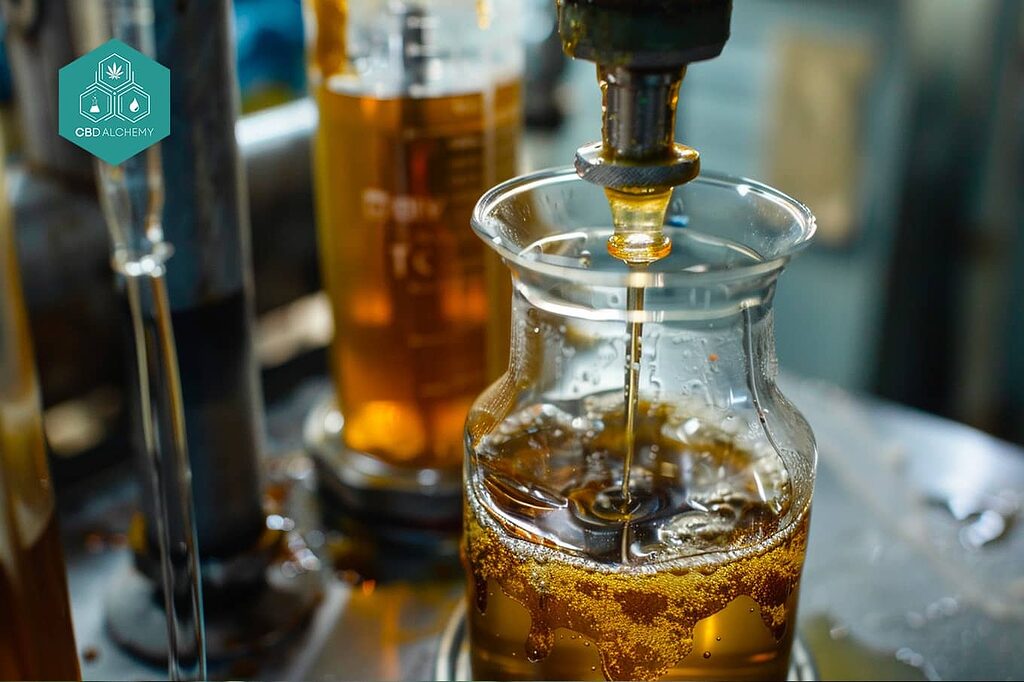
Using a method known as cold pressing, oil is mechanically extracted from hemp seeds without the application of heat in order to maintain its advantageous properties.
Comparison with CBD Oil
While both derived from different parts of the cannabis plant, hemp oil and CBD oil vary in content and applications. Hemp oil is extracted from the seeds of the hemp plant, whereas CBD oil comes from the actual cannabis plant itself.
Differences in Composition
Derived from the seeds of the cannabis sativa plant, hemp seed oil is characterized by having negligible or non-existent levels of THC and CBD, which render it a non-psychoactive substance. Both hemp seed oil and CBD oil. Do not cause intoxication due to their extremely low content of THC.
While hemp seed oil originates from the seeds of the cannabis plant, in contrast, CBD oil is usually extracted from its flowers and leaves. The cannabinoid content in hemp seed oil is minimal. For example, it contains no more than 75 parts per million (ppm) of CBD and up to 10 ppm of THC.
Different Uses and Effects
Hemp seed oil, which is predominantly made up of polyunsaturated fatty acids, stands apart from CBD oil in that it contains a higher concentration of these beneficial fats rather than cannabinoids. Unlike CBD oil, hemp seed oil isn’t utilized for recreational activities. Its health advantages are attributed to its impressive nutritional composition.
While CBD oil has gained recognition for alleviating pain, diminishing anxiety levels and enhancing sleep quality due to its rich cannabinoid content. The virtues of hemp seed oil lie in its contribution to nutrition and the promotion of heart health.
Risks and Side Effects of Hemp Oil
Hemp seed oil is typically deemed safe for use, though it can cause adverse reactions in certain people. It’s advisable for pregnant or nursing persons to refrain from consuming hemp seed oil as there is a lack of adequate safety information available. Those with allergies to cannabis might also experience allergic reactions when using hemp.
On infrequent occasions, the consumption of hemp oil has been linked to drowsiness and hepatic issues in minors. This oil may have the effect of reducing blood pressure. Caution should be exercised when facing surgery or if taking medications with analogous effects.
Summary
Hemp seed oil, renowned for its health-promoting properties, is an incredibly nutritious substance that can bolster cardiovascular well-being and soothe various skin ailments while aiding in digestive health. This versatile oil proves to be a beneficial supplement within any dietary regimen. Harness the extraordinary advantages of hemp seed oil and witness its impressive impact on your health.
Frequently Asked Questions
What are the primary components of hemp seed oil?
The oil extracted from hemp seeds is predominantly composed of triacylglycerols, forming more than 97% of its lipid content. This seed oil contains vital essential fatty acids like omega-3 and omega-6, as well as gamma-linolenic acid (GLA).
Such a composition underscores the nutritional importance of hemp seed oil.
How does hemp seed oil benefit cardiovascular health?
Hemp seed oil significantly benefits cardiovascular health by lowering blood pressure and reducing inflammation through omega-3 fatty acids, while linoleic acid helps to lower total and LDL cholesterol levels.
Incorporating hemp seed oil into your diet can promote a healthier heart.
Can hemp seed oil help with skin conditions?
The oil derived from hemp seed is known for its richness in gamma-linolenic acid (GLA), a substance that offers anti-inflammatory properties. These properties can assist in the relief of symptoms associated with skin conditions like atopic dermatitis and psoriasis, making hemp seed oil potentially advantageous for those suffering from such issues.
This particular seed oil contributes to maintaining skin moisture and mitigates inflammation. Consequently, individuals dealing with various skin ailments might find applications of hemp seed oil particularly beneficial for their condition.
What are some dietary uses of hemp seed oil?
Hemp seed oil is beneficial for dietary use as it can be consumed directly or incorporated into foods such as salads and smoothies, serving as a nutritious alternative to olive oil in cooking.
Are there any risks or side effects associated with consuming hemp seed oil?
Consuming hemp seed oil may pose risks such as sleepiness and potential liver issues in children, and it is advisable for pregnant or breastfeeding individuals to avoid it due to insufficient safety data.
Additionally, those with cannabis allergies should exercise caution as they may experience allergic reactions.
